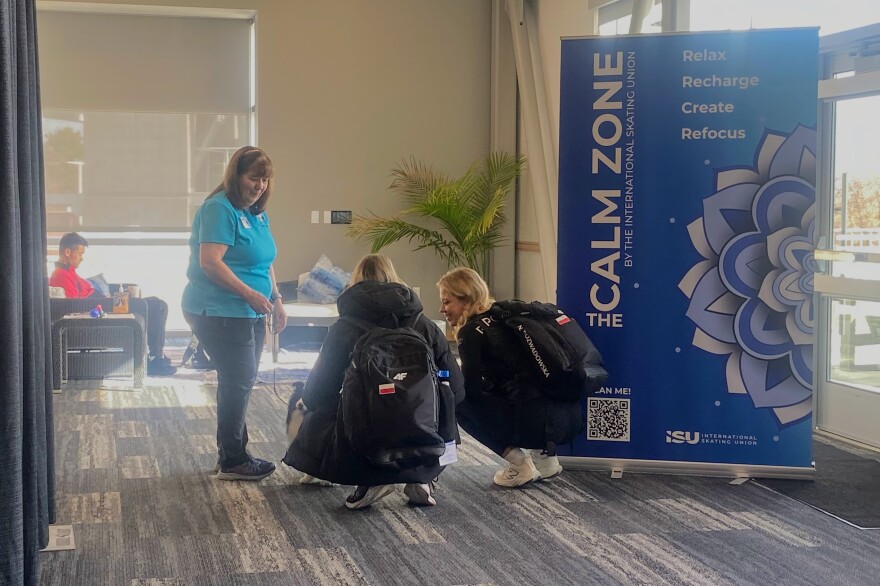Increasingly, the world’s elite athletes are speaking openly about the toll training and intense competition can have on their mental health and well-being.
In 2021, professional tennis player Naomi Osaka, Olympic gymnast Simone Biles and Olympic swimmer Michael Phelps all spoke out about their personal challenges with mental health and sports.
Such conversations inspired the International Olympic Committee to implement the “Mind Zone” during the 2024 Paris Olympics. The area was designed to give athletes a space where they could disconnect and decompress.
Athletes praised the experience, prompting International Skating Union President Jae Youl Kim to bring the concept to skating events. At the competition Saturday, he said the organization first introduced what the ISU calls the “Calm Zone” in March at a figure skating event.
“It was hugely successful,” Kim said. “Two-thirds of the participating athletes came to come join at least once, and some of them came back multiple times.”
Due to the Calm Zone’s success, Kim said his team decided to bring it to speed skating for the first time at the three-day ISU World Cup in Utah’s Olympic Oval in Kearns that started Friday, Nov. 14.
Alice Merryweather helps oversee the calm room and said the area features comfortable furniture, games, a station for writing notes of encouragement to other athletes and therapy dogs.
“We've had a steady stream who kind of sit in the big bean bag chairs, put on their headphones and tune everything out,” she said. “But especially when the dogs are there, I've seen so many athletes enter the room and just light up with big smiles.”
Merryweather is an Olympian who retired from professional alpine ski racing in 2024. She struggled with mental health and an eating disorder during her time in sports and said it’s nice to see the emphasis on improving athlete mental health.
“Seeing things like the Calm Zone being implemented, where athletes can actually prioritize their mental health and take care of themselves, makes me really hopeful for the future of athletics and how we can take care of athletes in ways more than just their physical abilities,” she said.
Utah Olympic leaders are taking notes on such initiatives and plan to emphasize athlete mental health during the 2034 Games. Utah Olympic organizing committee CEO and Vice Chair Brad Wilson said that includes providing lodging for families of competing Olympians across from the village where athletes will stay.
“Just think how important it is for an athlete to have their family across the street to support them, and to be there for the highs and lows of an Olympic experience,” he said.
Utah’s Olympic organizing team is working with the Huntsman Foundation on its mental health support efforts. Wilson said the foundation has committed $20 million to the 2034 Games, with part of that dedicated to mental health support.


